
Hac Dich High Tech Park - Ba Ria Vung Tau
- Investor: Hamek Investment Construction Joint Stock Company, Quang Anh Real Estate Joint Stock Company, and HVT Corporation
- Price: Updating
- Area: 450 Ha
Situated in the Southern Key Economic Zone, at the gateway to the South China Sea for provinces in the Southeastern region, Ba Ria – Vung Tau is well-connected to Ho Chi Minh City and other areas through road and waterway transport.
Vung Tau, a seaside city and the center of oil exploration activities in the South, used to serve as the administrative center of the province. However, as of May 2, 2012, the provincial capital was moved to Ba Ria City. This marked the province as the first in the Southeastern region to have two provincial-level cities.
Ba Ria – Vung Tau is renowned as one of Vietnam’s most famous and developed coastal provinces. With its strategic coastal location, the province boasts a strong economy, modern infrastructure, and is a attractive destination for tourists and international investors.
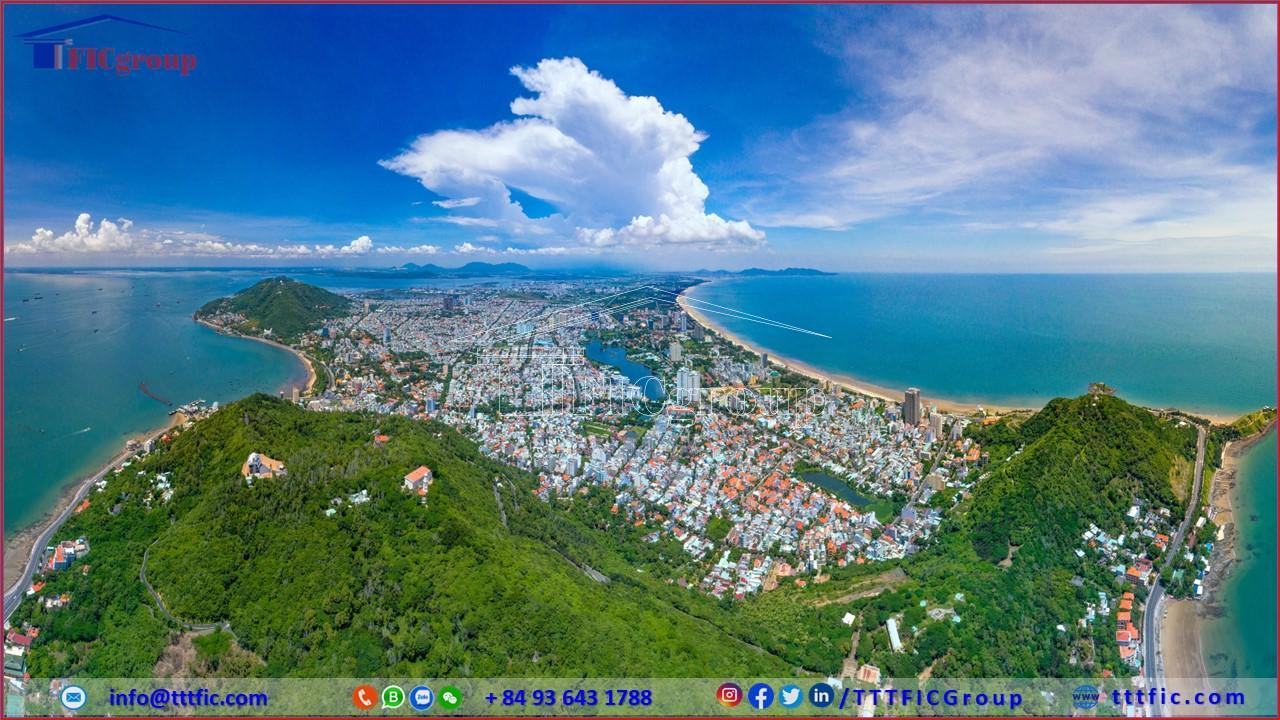
Ba Ria – Vung Tau is divided into 8 administrative units, including 2 cities, 1 town, and 5 districts, with 82 administrative units at the commune level, including 29 wards, 6 townships, and 47 communes, along with an island district known as Con Dao.
The province’s topography can be divided into four regions: the peninsula, islands, the hilly midlands, and the coastal delta. The Vung Tau Peninsula, which is long and narrow with an area of 82.86 square kilometers, has an average elevation of 3-4 meters above sea level. The island region includes the Con Lon archipelago and Long Son Island.
The hilly midlands are located in the northern and northeastern part of the province, primarily in Phu My town and the Chau Duc and Xuyen Moc districts. In this region, you can find coastal delta areas that include parts of Phu My town and the Long Dien, Ba Ria, and Dat Do districts. This area features rice paddies, low-lying areas interspersed with sand dunes along the coast, and sparse forests. The land area of the continental shelf is over 100,000 square kilometers.
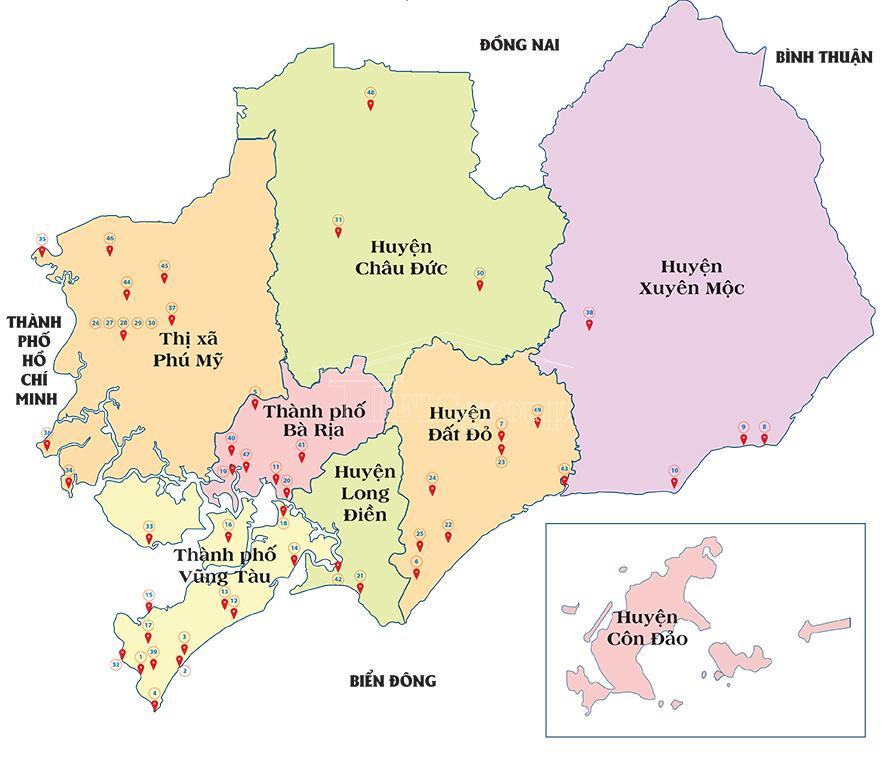
As of April 1, 2019, the total population of the province was 1,148,313 people, with a population density of 556 people per square kilometer. There were 576,228 males and 572,085 females. The natural population growth rate varied by region and was 1‰ overall, with 60.8% of the population living in urban areas and 29.2% in rural areas.
According to statistics from the General Statistics Office of Vietnam, as of April 1, 2009, there were 28 ethnic groups and foreign nationals residing in the province. The Kinh people were the largest group, with 972,095 individuals, followed by the Hoa with 10,042, the Cho Ro with 7,632, the Kho Me with 2,878, the Tay with 1,352, and other smaller ethnic groups such as the Nung with 993, the Mường with 693, the Thai with 230, and smaller groups like the Xo Dang, Ha Nhi, Chu Ru, Co Lao, each with one representative. Foreign nationals totaled 59 individuals.
As of April 1, 2019, Ba Ria – Vung Tau province had 13 different religions. The largest religious groups were Catholicism with 270,996 followers, Buddhism with 220,336, and Caodaism with 23,600. Other religions included Protestantism with 4,077 followers, Buu Son Ky Huong with 1,424, Tinh Do Buddhist Association of Vietnam with 1,168, Hoa Hao Buddhism with 468, Islam with 169, Minh Su Dao with 12, Bahá’í with five, Tu An Hieu Nghia Dao with four, and Ba-la-mon with three. Minh Ly Dao had two followers, and the rest had one each.
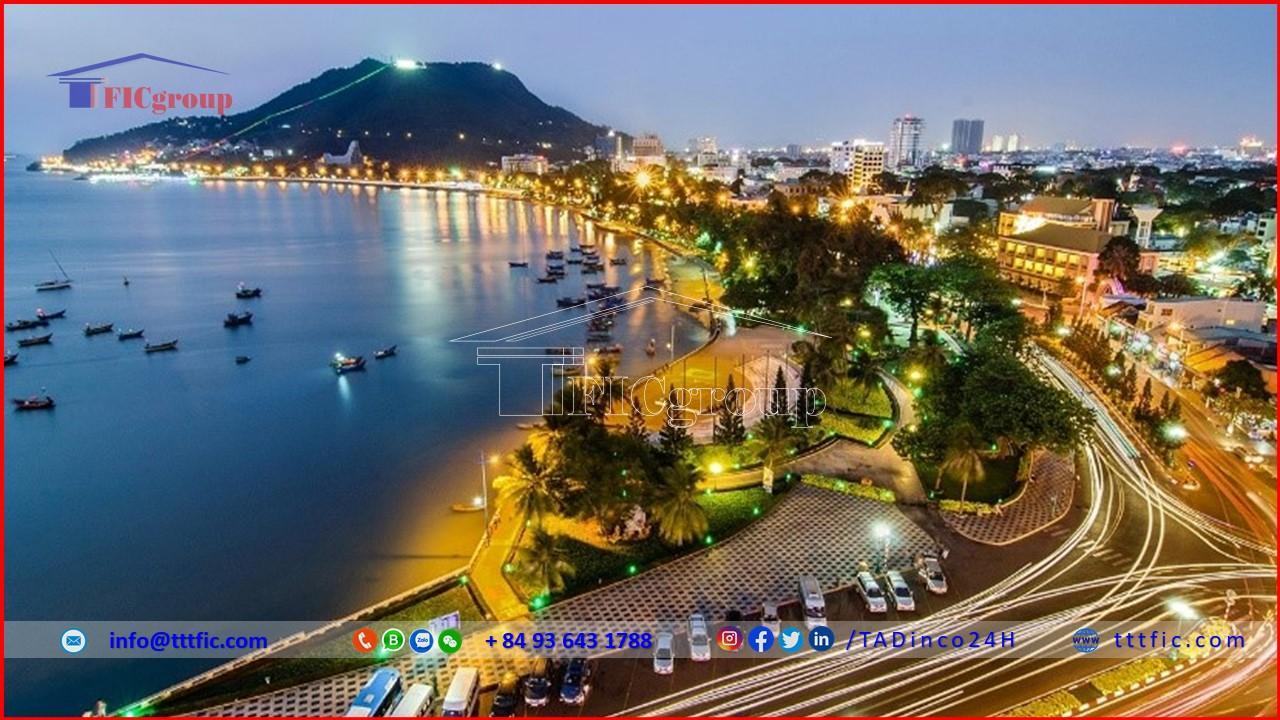
As of September 8, 2015, there were 505 schools in the entire province offering primary and secondary education. This includes 31 high schools, 92 lower-secondary schools, and 184 primary schools, along with 198 kindergartens. This extensive school system has contributed significantly to reducing the illiteracy rate in the province.
Currently, the province is home to one university, Ba Ria – Vung Tau University, established in 2006 by a decision of the Prime Minister. The university offers a wide range of disciplines. In 2019, it was listed in the world university rankings.
At present, the university offers master’s degree programs in 5 fields (Business Administration, Theory and Methodology of Teaching English, Oriental Studies, Information Technology, and Chemical Engineering) and 48 undergraduate programs (including Marketing, Finance – Banking, International Business, Industrial Management, Accounting, Logistics and Supply Chain Management, Transport Management, Law, Economic Law, Oriental Studies, Chinese Language, English Language, Psychology, Public Relations, Information Technology, Electrical Engineering, Electronics, Civil Engineering, Mechanical Engineering, Automotive Engineering, Chemical Engineering, Food Technology, Biology, Veterinary Medicine, Agriculture, Tourism and Hospitality Management, Hotel Management, Restaurant Management, Nursing).
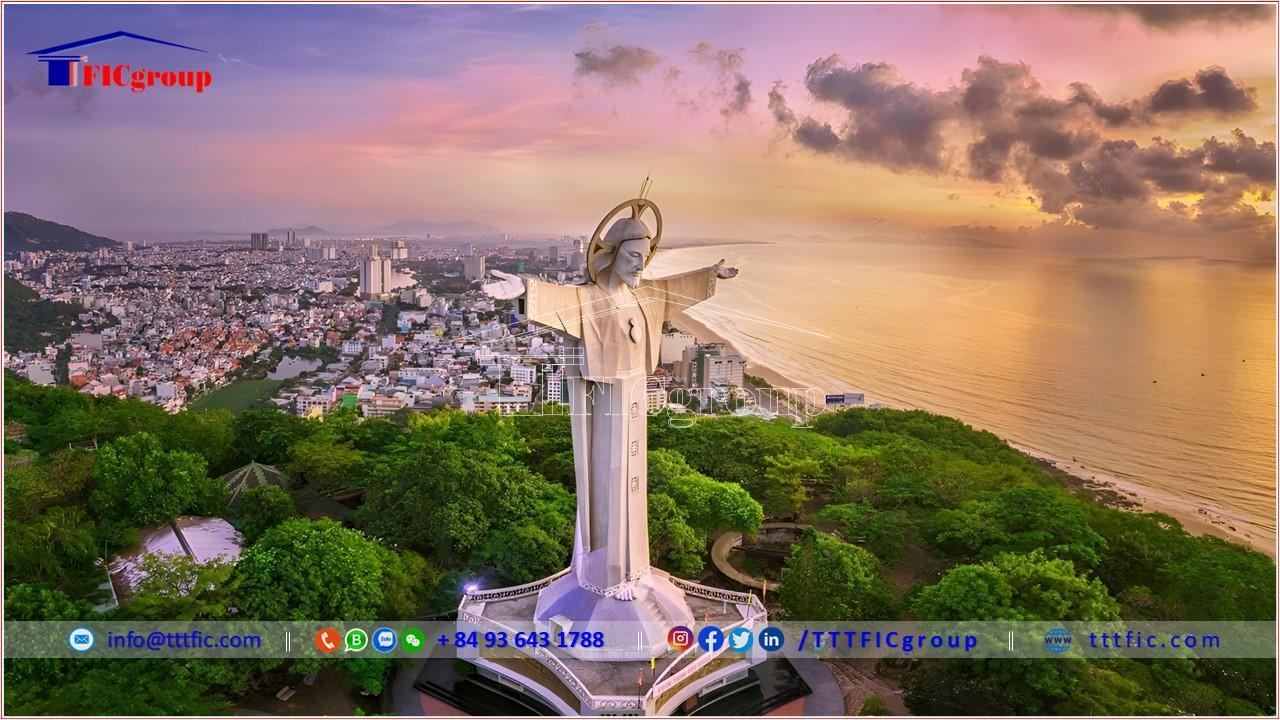
Ba Ria – Vung Tau is part of the Southern Key Economic Zone. The province’s economic activities are primarily driven by the oil and gas sector. In the Southeastern continental shelf, the exploration and drilling for oil and gas reserves have been quite successful. Commercially significant oil fields such as Bach Ho (the largest in Vietnam), Rong, Dai Hung, and Rang Dong have been discovered here. The export of oil makes a substantial contribution to Ba Ria – Vung Tau’s GDP.
Ba Ria – Vung Tau possesses significant potential for development, including holding 93% of the country’s oil reserves and 16% of its natural gas reserves. The government has focused on investing in the construction of a modern national and international seaport system in the province, positioning it as a key focal point in the national tourism program.
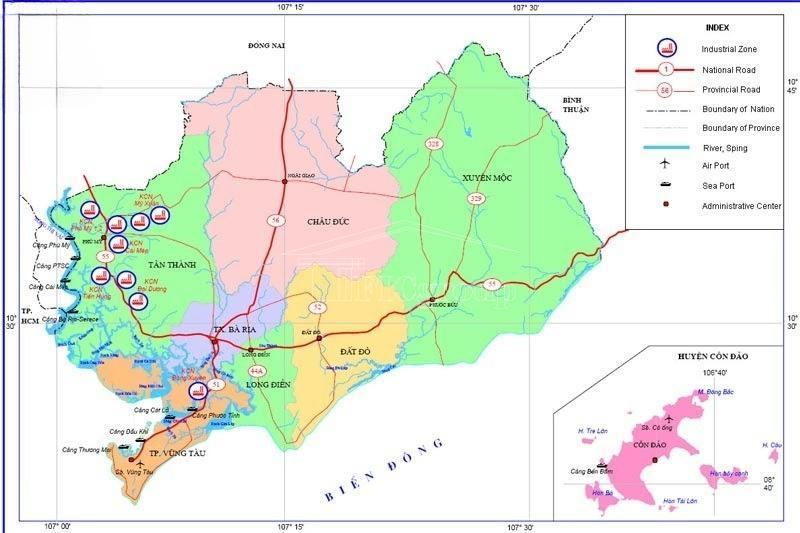
Ba Ria – Vung Tau also serves as a hub for energy, heavy industry, tourism, and seaports in Vietnam. The Phu My power center and the Ba Ria power plant account for 40% of the country’s total electricity production capacity (over 4,000 MW out of nearly 10,000 MW nationwide). The heavy industry includes the production of fertilizer (800,000 tons per year), polyethylene production (100,000 tons per year), clinker production, and steel production (currently, the province is home to several large steel mills such as VinaKyoei, Pomina, South Steel, Bluescopes, Viet Steel, Flat Steel, SMC Steel Plant, and Posco Vietnam is constructing a cold-rolled steel plant).
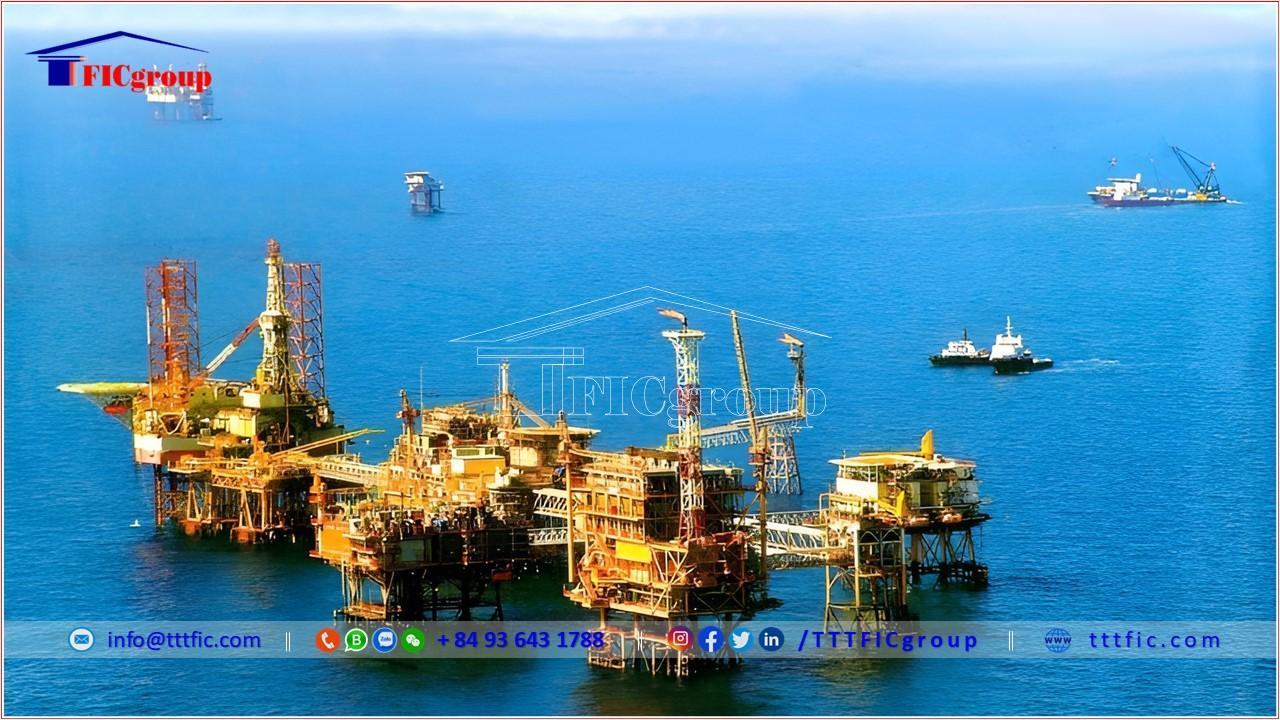
Since the government’s decision to relocate ports from within Ho Chi Minh City, Ba Ria – Vung Tau has become a major seaport hub in the Southeastern region. The large ports are mainly concentrated along the Thi Vai River. Saigon Port and the Ba Son power plant are relocating and constructing large seaports here. The Thi Vai River has a depth of 15 meters, ensuring that container ships with capacities exceeding 100,000 tons can directly access Ba Ria – Vung Tau and travel to European and American countries. As of now, 24 out of 52 ports in the province have become operational, while the others are still in the planning and construction phase. Ba Ria – Vung is a major trade gateway for the Southern region of Vietnam and the country as a whole, thanks to its proximity to international maritime routes and its status as the province with the most seaports in Vietnam.
Ba Ria – Vung is one of the leading tourist centers in the country. The most famous attraction in Vung Tau is Thuy Van Beach, also known as Bai Sau, located on Thuy Van Street. Along the Long Hai coast in Xuyen Moc, there are beautiful beaches and large resorts, including Ho Tram MGM, Vietso Resort, and many others. Tourist areas include Bien Dong tourist area, Nghinh Phong tourist area, and various hotels like Pullman, Imperial, Thuy Van, Sammy, Intourco Resort, and DIC Hotel.
As of now, there are 301 FDI projects with a total registered capital of $27 billion and 450 domestic investment projects with a total registered capital of over 244 trillion VND in the province.
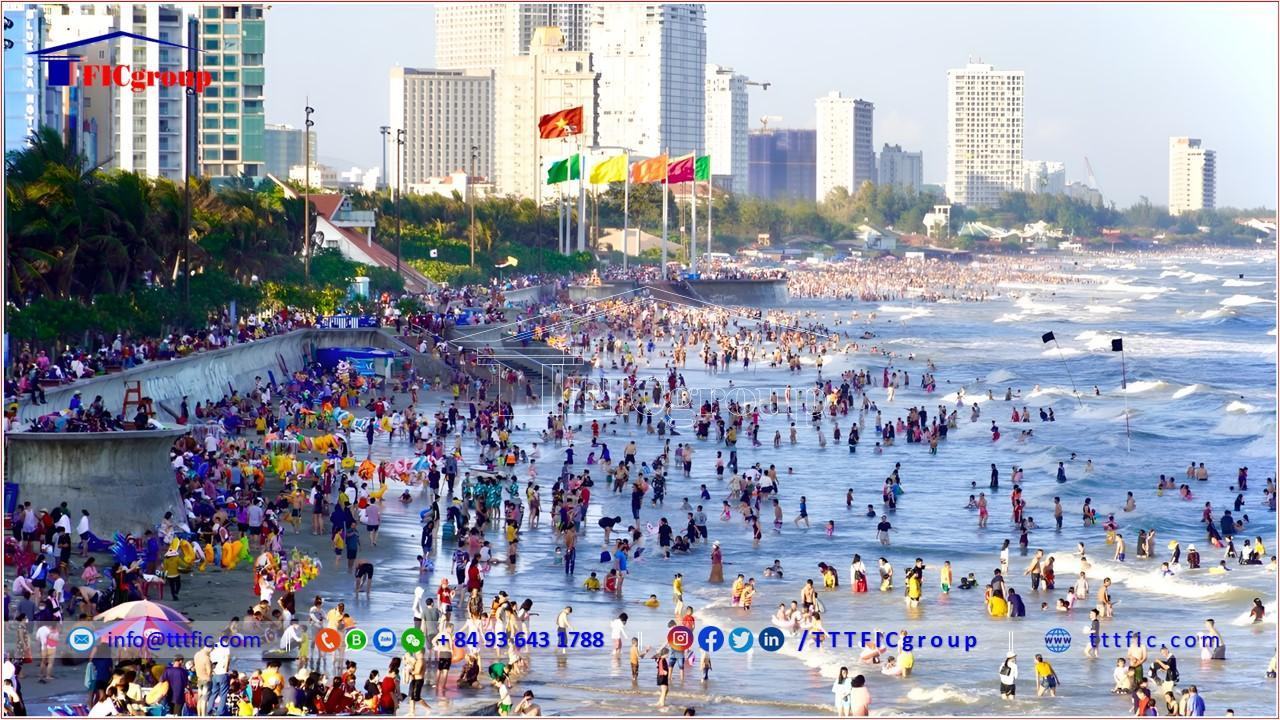
Phu My Industrial Parks are prominent industrial zones in Ba Ria – Vung Tau Province, driving economic growth and international trade. Here is a list of some of these industrial parks and their names:
These industrial parks significantly contribute to the economic development of the Ba Ria Vung Tau region, providing various opportunities for businesses and investors in Vietnam’s growing industrial sector.
Vung Tau Port is a major seaport serving as the southern gateway and an international port of Vietnam with a Class I A master plan. It is known as a crucial maritime customs checkpoint of Vietnam. Every year, Vung Tau Port handles 30,000 sea vessels and over 70,000 high-speed hydrofoils, inland waterway vessels, and fishing boats traveling to Ganh Rai Bay. Additionally, Vung Tau Port provides maritime services for vessels arriving from or departing to ports in the provinces of Ba Ria – Vung Tau, Dong Nai, Ho Chi Minh City, Dong Thap, My Tho, Binh Duong, and for transit to Cambodia.
Within the master plan of Vung Tau Port, there are 77 wharves (including 67 land-based wharves and 10 offshore oil wharves). As of now, 47 wharves, 3 floating wharves, and 10 offshore oil ports are operational, with a total quay length of 17.87 kilometers. Among these, 5.657 kilometers are used for container handling. Specifically:
In addition to the above wharves, Vung Tau Port also has a vessel anchorage area with 72 anchorage positions, 5 maritime channels (Dinh River Channel, Vung Tau – Thi Vai Channel, Con Son Channel, Bến Đầm Channel, and a portion of Vung Tau – Sai Gon Channel), and other related port infrastructure.
As of now, Ba Ria – Vung Tau Province has put into operation 21 seaports with a capacity of approximately 45 million tons per year, primarily concentrated in the Thi Vai – Cai Mep area. In 2009, the cargo volume reached 31 million tons with 80,000 visiting vessels. By 2010, these figures had all experienced significant growth, both in cargo volume and the number of visiting vessels.
To date, the province’s seaport system is gradually being exploited and 12 projects are in the preparation stages, along with 22 other seaport projects in various stages of implementation. According to design estimates for capacity, Vung Tau Port is expected to reach around 250 million tons, including 19 general cargo terminals with approximately 219 million tons of container capacity and 36 dedicated terminals with approximately 31 million tons of handling capacity. Ba Ria – Vung Tau Province aims to essentially complete its entire seaport system with a total capacity of around 250 million tons per year by 2020, ensuring the smooth flow of goods through the province’s port system, aiming for around 60 million tons per year by 2015, 120 million tons per year by 2020, and 250 million tons per year by 2030.
| No | Here’s the list of ports | locations |
| 1 | Baria Serece Port | Phu My Town |
| 2 | Phu My Power Plant Port | Phu My Town |
| 3 | PVGas Vung Tau Port | Vung Tau City |
| 4 | Vietsovpetro Port | Vung Tau City |
| 5 | Cam Pha Cement Port | Phu My Town |
| 6 | Vung Tau Commercial Port (Cat Lo Branch) | Vung Tau City |
| 7 | PTSC Upper River Port | Vung Tau City |
| 8 | PTSC Oil Port | Vung Tau City |
| 9 | PTSC Lower River | Vung Tau City |
| 10 | K2 Oil Port (Vung Tau Oil Branch Port – Vung Tau City) | Vung Tau City |
| 11 | Interflour Cai Mep Port | Phu My Town |
| 12 | Dong Xuyen Oil Port | Vung Tau City |
| 13 | Phu My Fertilizer and Petroleum Service Port | Phu My Town |
| 14 | Phu My Steel Port | Phu My Town |
| 15 | Holcim Thuy Vai Specialized Port | Phu My Town |
| 16 | Vung Tau Shipyard Port | Vung Tau City |
| 17 | Cat Lo Vung Tau Fish Port | Vung Tau City |
| 18 | Cat Lo Seafood Port | Vung Tau City |
| 19 | Truong Sa Seafood Port | Vung Tau City |
| 20 | Saigon Vietnam International Port (SITV) | Phu My Town |
| 21 | Petec Cai Mep Oil Port | Phu My Town |
| 22 | PVC-MS Metal Structure and Offshore Oil Port | Vung Tau City |
| 23 | Vina Offshore Port | Vung Tau City |
| 24 | PV Shipyard Offshore Drilling Rig Construction Port | Vung Tau City |
| 25 | Cai Mep Thuong Container Port | Phu My Town |
| 26 | Vard Vung Tau Co., Ltd. International Port | Vung Tau City |
| 27 | Thi Vai ODA Comprehensive Port | Phu My Town |
| 28 | Cai Mep International Container Port (ODA) | Phu My Town |
| 29 | SP-PSA International Port | Phu My Town |
| 30 | 10,000DWT Decoration Port Saigon Shipyard – Saigon | |
| 31 | Cai Mep International Port (CMIT) | Phu My Town |
| 32 | Ha Loc Port | Vung Tau City |
| 33 | Cu Lao Tao Oil Warehouse Port | Vung Tau City |
| 34 | Dong Xuyen Industrial Zone Port | Vung Tau City |
| 35 | Ben Dam Port (Con Dao) | Con Dao District |
| 36 | Posco SS-Vina Port | Phu My Town |
| 37 | Posco Port | Phu My Town |
| 38 | Ba Son Shipbuilding Plant Port | Phu My Town |
| 39 | Nasos Port | Vung Tau City |
| 40 | Petro Vung Tau Oil Port | Vung Tau City |
| 41 | Saigon – SSA International Container Port (SSIT) | Phu My Town |
| 42 | Cat Viet Port | Phu My Town |
| 43 | TLC Vung Tau Port | Phu My Town |
| No | Ports | VESSEL CAPACITY (DWT) | TOTAL LENGTH OF THE BRIDGE (Meters) |
| I – PORTS, BRIDGES ON THE DINH RIVER | |||
| 1 | Hai Doan Port 129 | ≤ 3,000 | Port Bridge 2: 114
Port Bridge 3: 59 |
| 2 | Ha Loc Port | ≤ 5,000 | 100 |
| 3 | Central Port Authority Maritime Search and Rescue Bridge, Zone 3 | 51 | |
| 4 | Cat Lo Fisheries Port | ≤ 1,000 | 110 |
| 5 | Vung Tau Commercial Port | ≤ 5,000 | 250 |
| 6 | K2 Oil Storage Port | ≤ 5,000
According to Document No. 2451/CHHVN-CTHH dated July 10, 2019, permitting operations until December 31, 2019 |
82 |
| 7 | Military Port of Military Region 7 | ≤ 5,000 | 110 |
| 9 | NASOS Port Bridge | ≤ 1,000 | 132 |
| 10 | 10,000 DWT Decoration Port Bridge at Sai Gon Shipyard (SOFEL) | ≤10,000 | 100 |
| 11 | Dong Xuyen Industrial Zone Port | ≤10,000 | 240 |
| 12 | 3,000 DWT Port Bridge of Vina Offshore Marine Engineering Co., Ltd | ≤3,000 | 82 |
| 13 | VARD Vung Tau Co., Ltd. Port Bridge | ≤ 7,000 | 140 |
| 14 | Dong Xuyen Oil Storage Port Bridge | ≤ 10,000 | 156 |
| 15 | PVOil Oil Storage Specialized Port Bridge | ≤ 10,000 | 138 |
| 16 | Port Bridge No. 2 at Cu Lao Tao Oil Storage Facility | ≤ 10,000 | 160 |
| 17 | Vung Tau Petroleum Service Upper Terminal (PTSC) | ≤ 5,000 | 120 |
| 18 | Vietsovpetro Ports | 10 port bridges | Total: 1400 |
| Port Bridge 0 < 5000 | Port Bridge 0: 146 | ||
| Port Bridge 1 < 5000 | Port Bridge 1: 150 | ||
| Port Bridge 2 < 5000 | Port Bridge 2: 150 | ||
| Port Bridge 3 < 5000 | Port Bridge 3:150 | ||
| Port Bridge 4 < 5000 | Port Bridge 4:150 | ||
| Port Bridge 5 ≤ 10,000 | Port Bridge 5:105 | ||
| Port Bridge 6 ≤ 10,000 | Port Bridge 6:105 | ||
| Port Bridge 7 ≤ 8000 | Port Bridge 7:150 | ||
| Port Bridge 8 ≤ 8000 | Port Bridge 8:150 | ||
| Port Bridge 9 ≤ 8000 | Port Bridge 9:144 | ||
| 19 | PTSC Lower Terminal Port | ≤ 10,000 | Total: 733 |
| Old Port Bridge: 450 | |||
| New Port Bridge: 283 | |||
| 20 | PVShipyard Port | ≤ 15,000 | 156 |
| 21 | PVC-MS Port | Full load < 5000; | 142 |
| Reduce load ≤ 10,000 | |||
| II – PORTS ALONG THE CAI MEP – THI VAI RIVER | |||
| 1 | Cam Pha Cement Crushing Station Port | Total: 279 | |
| Port Bridge 1 ≤ 15,000 | Port Bridge 1: 224 | ||
| Port Bridge 2 ≤ 500 | Port Bridge 2:55 | ||
| 2 | Phu My Oil Port of Phu My 1 Power Plant | ≤ 10,000 | 190 |
| 3 | Phu My 2-1 Power Plant Oil Port Bridge | ≤ 10,000 | 175 |
| 4 | SCC-VN Thi Vai Port | According to the plan < 60.000 | Total: 316 |
| Port Bridge 1 ≤ 50,000; | Port Bridge 1: 246 | ||
| Port Bridge 2 ≤ 1.600. | Port Bridge 2: 70 | ||
| 5 | Saigon Vietnam International Port (SITV) | According to Decision No. 1133/QD-CHHVN dated July 17, 2018, for receiving ships <100,000 | 727.9 |
| According to Decision No. 413/QD-CHHVN dated May 30, 2012, declared: ≤ 80,000 | |||
| 6 | Thi Vai International General Port | 03 Port Bridge | Total: 440 |
| Port Bridge 1 ≤ 50,000
(Load reduction < 80,000) draft ≤ 12.3 meters |
Port Bridge 1: 300 | ||
| Port Bridge 2 ≤5.000 | Port Bridge 2: 140 | ||
| 7 | Baria Serece Port | According to Decision No. 1354/QD-CHHVN dated August 22, 2018, the port is allowed to receive vessels with a capacity of <87,000 DWT | Total: 1062.6 |
| According to Decision No. 429/QD-CHHVN dated April 18, 2018, announced:
Port Bridge 1 (reduce load) ≤80,000; Port Bridge 2 ≤5.000; Port Bridge 3,5 ≤5.00; Port Bridge 4≤2.100 |
Port Bridge 1: 555.4 | ||
| Port Bridge 2: 332.8 | |||
| Port Bridge 3: 116.4 | |||
| Port Bridge 4: 29 | |||
| Port Bridge 5: 29 | |||
| 8 | Phu My Petrochemical and Integrated Petroleum Services Port (PTSC Phu My Port) | 03 Port Bridge | Total: 644.3 |
| Port Bridge 1 ≤80,000
Approval of the plan according to Decision No. 2127/QD-CHHVN-AT&TTHH dated May 25, 2016 |
Port Bridge 1: 384.3 | ||
| Port Bridge 2 ≤2,500 | Port Bridge 2: 130 | ||
| Port Bridge 3 ≤1,500 | Port Bridge 3: 130 | ||
| Port Bridge 4 | Port Bridge 4: 60 | ||
| 9 | Phu My Steel Plant Port | 02 Port Bridge | Total: 276 |
| Port Bridge 1 ≤50,000 | Port Bridge 1: 230 | ||
| Port Bridge 2 ≤500 | Port Bridge 2: 46 | ||
| 10 | Thi Vai Integrated Port (Thi Vai ODA Port) | According to Decision No. 1133/QD-CHHVN dated July 17, 2018, for receiving vessels <93,366.7 | 600 |
| According to Decision No. 916/QD-CHHVN dated September 8, 2015, declared: ≤75,000 | |||
| 11 | SP-PSA International Port | ≤117,000 (cont)
≤100,000 (Dry) |
Total: 600 |
| According to Decision No. 880/QD-CHHVN dated September 3, 2009, declared: ≤80,000 DWT | Port Bridge V 1: 300 | ||
| Port Bridge V 2: 300 | |||
| 12 | Posco Port | ≤60,000 | 333,1 |
| 13 | Posco Yamato Vina Port | ≤ 50,000 | 266,8 |
| 14 | Ba Son Shipyard Port | Total: 730 | |
| Port Bridge 1:
No cargo ≤70,000; Loaded <10.000 |
Port Bridge:190 | ||
| Port Bridge 2:
No cargo ≤150,000; Loaded <15.000 |
Port Bridge: 280 | ||
| Buoy: 8.850 T | Buoy: 150 | ||
| Ferry terminal <3.000 | Ferry terminal: 110 | ||
| 15 | Interflour Cai Mep Port | 02 Port Bridge | Total: 460 |
| Port Bridge 1 ≤80,000 | Port Bridge 1: 310 | ||
| Port Bridge 2 ≤7000 | Port Bridge 2: 150 | ||
| 16 | Cai Mep Upper Container Port (TCCT Port) | According to the announcement: ≤80,000 | Total: 514 |
| *2059/QD-CVHHVT dated December 17, 2016 (Testing for ≤132,000) | Main bridge: 300 | ||
| Ferry Terminal No. 1 Bridge ≤ 2,200 | Ferry 1: 52.5 | ||
| Ferry Terminal No. 2 Bridge ≤ 2,000 | Ferry 2:69.5 | ||
| Ferry Terminal No. 3 Bridge ≤ 2,000 | Ferry 3: 92 | ||
| 17 | Cai Mep Upper Container Port (TCIT Port) | Tidal poin ≤ 157,000 | Total: 590 |
| According to Decision No. 970/QD-CHHVN dated November 26, 2010, declared: ≤ 80,000 | Port Bridge 2: 320 | ||
| Port Bridge 3: 270 | |||
| 18 | Hyosung Vina Chemical Port | 60.000 | 268 |
| 19 | PVGas Vung Tau Port | 02 Port Bridge | Total: 326 |
| Port Bridge 1 ≤ 60,000 | Port Bridge 1: 242 | ||
| Port Bridge 2 < 2000 | Port Bridge 2: 84 | ||
| 20 | PETEC Cai Mep Oil Port | Port Bridge 1 ≤ 60,000
Port Bridge 2 ≤ 5,000 Port Bridge 3 ≤ 1,000 |
320
131 72 |
| 21 | Petro Vung Tau Oil Port | ≤ 70,000 | 281.5 |
| 22 | Cai Mep General Port | Port Bridge 2 < 5000 | 205.8 |
| 23 | Cai Mep International Terminal (CMIT Port) | According to Decision No. 489-QD-CHHVN dated May 4, 2018, currently undergoing testing for DWT ≤ 194,000 | 600 |
| According to Decision No. 1000/QD-CHHVN dated November 21, 2012, declared: ≤160,000 | |||
| 24 | Cai Mep International Container Terminal (TCTT Port) | DWT ≤ 160,000 | 600 |
| According to Decision No. 1399/QD-CHHVN dated December 10, 2015 (supplementing Decision No. 657/QD-CHHVN dated July 21, 2015), declared: ≤100,000 | |||
| 25 | Saigon-SSA International Container Port (SSIT Port) | Total: 881.5 | |
| Ship Bridge No. 1 ≤ 160,000 | Port Bridge 1: 600 | ||
| Ship Bridge No. 1 ≤ 500 | Port Bridge 2: 281.5 | ||
| Ship Bridge No. 1 ≤ 2.500 | Port Bridge 3: 201.1 | ||
| 26 | Cai Mep Gemadept – Terminal Link Port | 200.000 | 800 |
| III – PORTS IN THE CON DAO AREA | |||
| 1 | Ben Dam Port – Con Dao | ≤ 2,000 | 82 |
| IV – OFFSHORE OIL AND GAS PORTS | |||
| 1 | Bach Ho Oil Field DKNK Port | ≤ 150,000
+CHI LINH +VIETSOVPETRO 01 +VIETSOVPETRO 02 |
295
262 261 |
| 2 | Rong Oil Field DKNK Port | ≤150,000
+CHI LINH +VIETSOVPETRO 01 +VIETSOVPETRO 02 |
295
262 261 |
| 3 | Dai Hung Oil Field DKNK Port (Block 05-1A) | ≤150,000
DAI HUNG QUEEN |
260 |
| 4 | Crude Oil Offloading Terminal at Rang Dong Field (Block 15-2) without a pier | ≤150,000
RANG DONG MV 17 |
189 |
| 5 | Crude Oil Export Terminal at Rong Doi – Rong Doi Tay Field (Block 11-2) | ≤150,000
RONG DOI MV 12 |
180 |
| 6 | White Rhino Oil Field DKNK Seaport (Block 16-1) | ≤150,000
ARMADA TGT 01 |
336 |
| 7 | Magpie Oil Field DKNK Seaport (Block 12W) | ≤150,000
LEWEK EMAS |
290 |
| 8 | East Sea Oil Field DKNK Port (Hai Thach – Moc Tinh Field) (Blocks 05-2; 05-3) | ≤150,000
PTSC BIEN DONG 01 |
172 |
| 9 | Lan Tay – Lan Do – Phong Lan Dai Oil Field (Block 06.1) | ||
| 10 | Sao Vang Dai Nguyet Oil Field DKNK Port | ≤ 150,000 | |
The province has a fairly comprehensive road system connecting its districts and towns. National Highway 51A (8 lanes) runs through the province for nearly 50 km. In the coming years, there will be the Bien Hoa – Vung Tau Expressway, a 6-lane highway parallel to National Highway 51A, a 4-lane to 6-8-lane beltway connecting to the Bien Hoa – Vung Tau Expressway in the Phu My town area, National Highway 56 from Long Khanh to Ba Ria, and National Highway 55A from Ham Tan to Ba Ria.
The province currently has two operational airports, including a specialized airport, Vung Tau Airport, in the center of Vung Tau city, mainly serving helicopters for oil exploration, and a dual-use airport, Co Ong Airport, in Con Dao district.
The province is also implementing plans to relocate Vung Tau Airport to Ganh Rai Island, a suburb of Vung Tau, and develop Ganh Rai Airport into a dual-use airport, serving both civil aviation and oil exploration activities, as well as national defense and security missions. In the future, Long Thanh International Airport will be built about 70 km from Vung Tau, approximately 20 km from the provincial border.
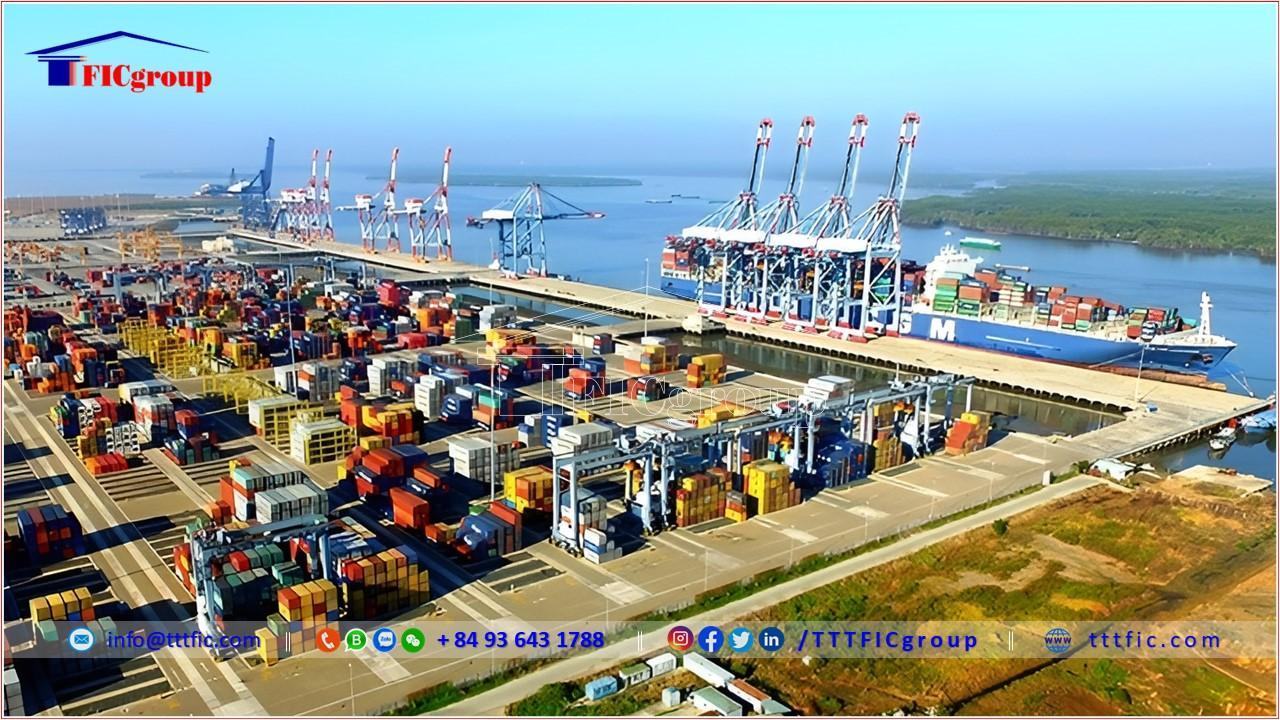
Ba Ria – Vung Tau province is known for its beautiful beaches and stunning scenic spots. Bai Truoc, Bai Dua, and Bai Dau are famous beaches that attract many visitors for sightseeing and relaxation. Additionally, Vung Tau boasts unique destinations such as Big Mountain, Small Mountain, Hon Ba, and the Christ the King Statue.
Seaside and mountain tourism, along with water sports like diving and surfing, make Ba Ria – Vung Tau a popular destination for both domestic and international tourists.
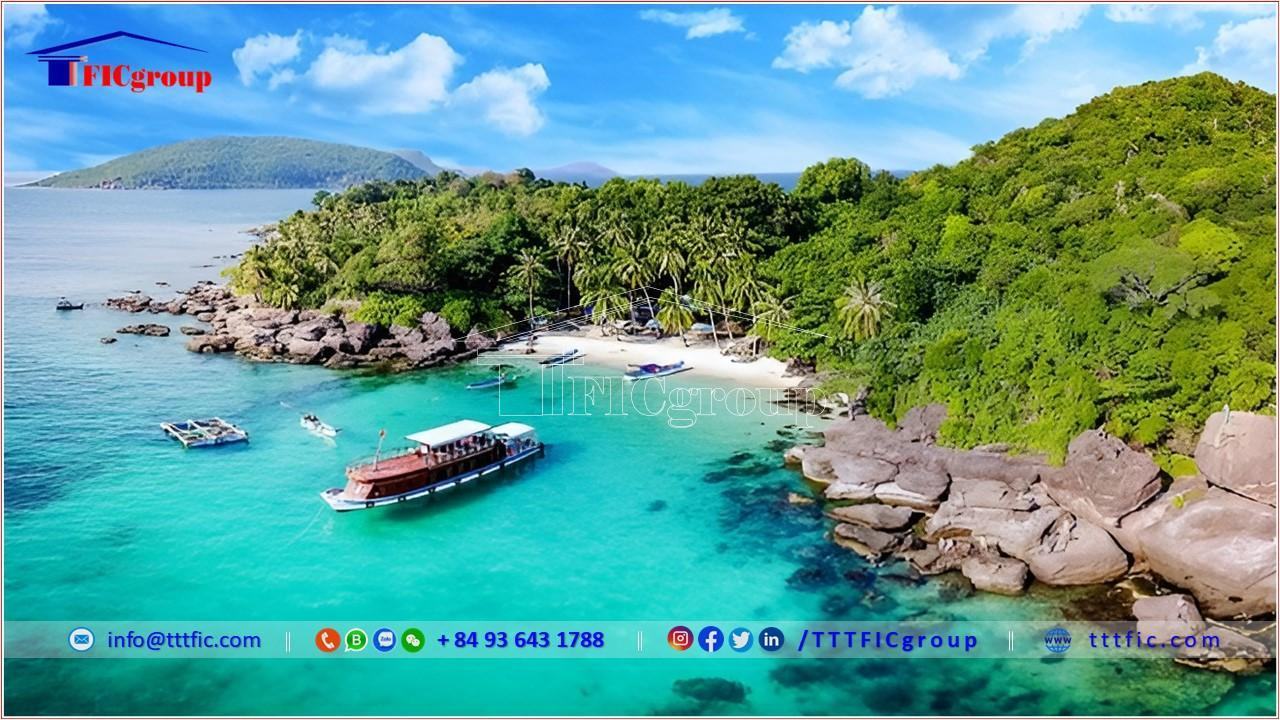
Ba Ria – Vung Tau province has attracted numerous investment projects in various sectors, including oil and gas, renewable energy, and support industries. Industrial parks and special economic zones have been established to support enterprises and create favorable conditions for investment and business development.
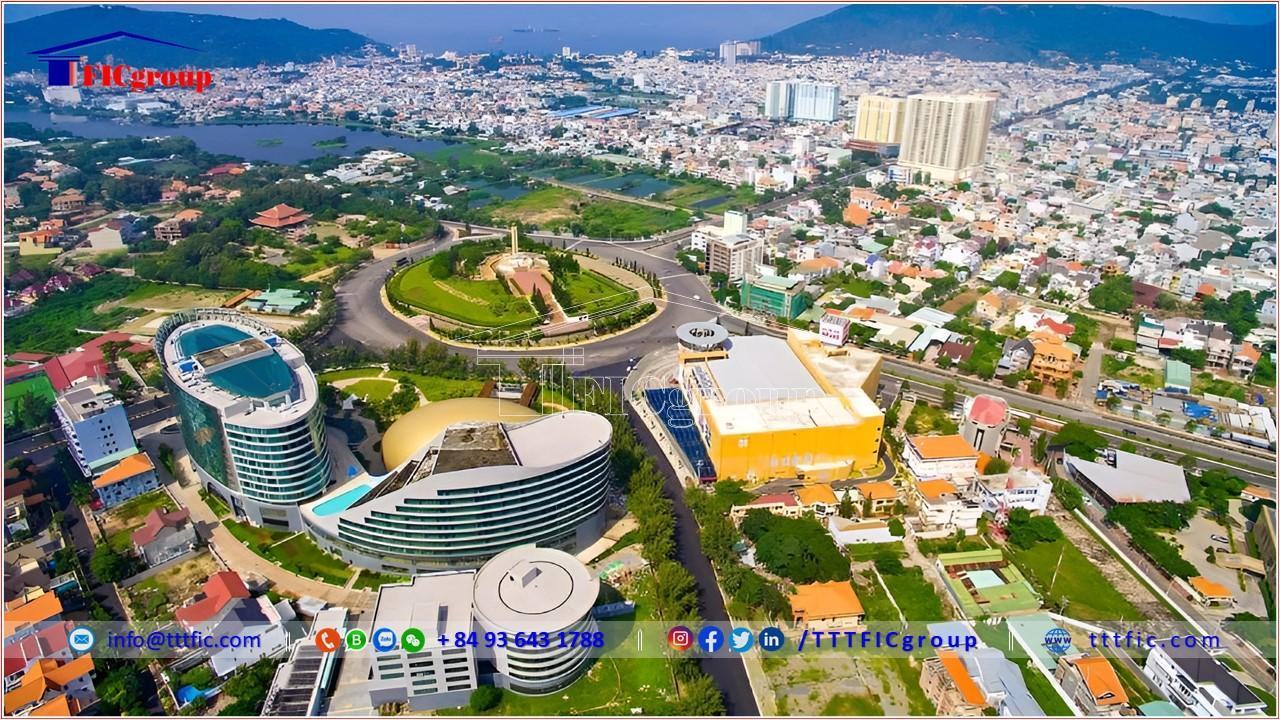
Ba Ria – Vung Tau province has implemented various investment incentives and policies to stimulate economic development and attract investment. These policies include tax exemptions and income tax incentives for investment projects, land ownership rights, and infrastructure support.
Ba Ria – Vung Tau province is one of the bright spots of Vietnam’s economy with developed infrastructure and a coastal geographic advantage. It is also an attractive tourist destination with beautiful beaches and unique attractions. The blend of cultures, economic diversity, and investment incentives has created a diverse and exciting development environment in Ba Ria – Vung Tau province.
We offer Information and Consultation Services for Industrial Real Estate, including leasing, buying, foreign direct investment (FDI), mergers and acquisitions (M&A), and legal consultancy for foreign investors.
Call us today for the best opportunities to expand your business into Vietnam! We specialize in M&A consultancy for industrial real estate in industrial zones throughout Vietnam.
————————————
Team Marketing
Tel: + 84 274 633 6888
Email: info@tttfic.com
Phone: + 84 916 974488
IG/Twitter/LinkedIn/page: /TTTFICGroup
Table of contents






